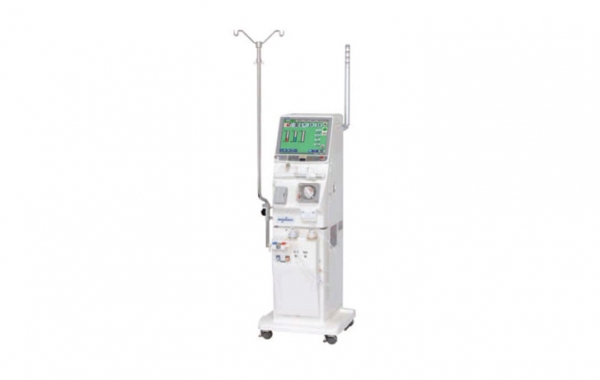The rising prevalence of chronic kidney disease (CKD) has led to an increased demand for dialysis treatment worldwide. Dialysis is a critical medical procedure that replaces the functions of the kidneys by removing waste products and excess fluids from the blood. The effectiveness and quality of dialysis treatment heavily depend on the technology and equipment used. This is where dialysis equipment companies play a pivotal role.
The Importance of Dialysis Equipment
Dialysis equipment is essential for providing life-sustaining treatment to patients with kidney failure. There are two main types of dialysis: hemodialysis and peritoneal dialysis. Each type requires specific equipment designed to ensure safety, efficiency, and comfort for patients.
Hemodialysis Equipment: Hemodialysis involves circulating a patient's blood through an external machine where it is filtered and cleaned before being returned to the body. Key components include:
- Dialysis machines that pump blood, add anticoagulants, and monitor flow.
- Dialyzers (artificial kidneys) that filter the blood.
- Vascular access devices like catheters and fistulas that provide access to the bloodstream.
Peritoneal Dialysis Equipment: Peritoneal dialysis uses the lining of the abdominal cavity (peritoneum) to filter blood internally. Essential equipment includes:
- Dialysis solution bags containing a special fluid that absorbs waste products.
- Catheters implanted in the abdomen to infuse and drain the dialysis solution.
- Automated cyclers that manage fluid exchange overnight.
Leading Dialysis Equipment Companies
Several dialysis equipment companies are at the forefront of innovation, ensuring that patients receive the best possible care. These companies focus on developing advanced technologies and improving the overall dialysis process. Some of the leading companies include:
Fresenius Medical Care: As one of the largest providers of dialysis products and services, Fresenius Medical Care offers a wide range of equipment for both hemodialysis and peritoneal dialysis. Their products are known for their reliability and advanced features, ensuring optimal patient outcomes.
Baxter International: Baxter is a global leader in providing peritoneal dialysis equipment. Their innovative solutions include user-friendly cyclers and continuous ambulatory peritoneal dialysis (CAPD) systems that allow patients to manage their treatment at home with ease.
Nipro Medical Corporation: Nipro Medical Corporation manufactures high-quality dialysis machines, dialyzers, and vascular access products. Their commitment to research and development has led to significant advancements in dialysis technology, improving patient safety and comfort.
B. Braun: B. Braun offers a comprehensive portfolio of dialysis equipment, including state-of-the-art hemodialysis machines and consumables. Their focus on sustainability and patient-centered care sets them apart in the industry.
Innovation and Advancements
Dialysis equipment companies continually invest in research and development to introduce innovative technologies that enhance the dialysis experience. Some of the recent advancements include:
Improved Dialyzers: New dialyzer designs offer better biocompatibility and higher efficiency in filtering waste products, reducing treatment times and improving patient outcomes.
Wearable Dialysis Devices: Researchers are developing wearable dialysis devices that allow patients greater mobility and independence, significantly improving their quality of life.
Telehealth Integration: Many companies are integrating telehealth features into their dialysis machines, enabling remote monitoring and consultation with healthcare providers. This advancement is particularly beneficial for patients in remote areas or those with limited access to medical facilities.
Patient-Centric Design: Modern dialysis equipment focuses on patient comfort and ease of use. User-friendly interfaces, quieter machines, and ergonomic designs make the treatment process less stressful for patients.
Conclusion
Dialysis equipment companies play a crucial role in the healthcare ecosystem by providing the necessary tools and technologies for effective dialysis treatment. Their continuous innovation and commitment to improving patient care have transformed the lives of millions of people living with kidney disease. As these companies continue to push the boundaries of medical technology, the future of dialysis treatment looks promising, with the potential for even greater advancements that will further enhance patient outcomes and quality of life.





Comments